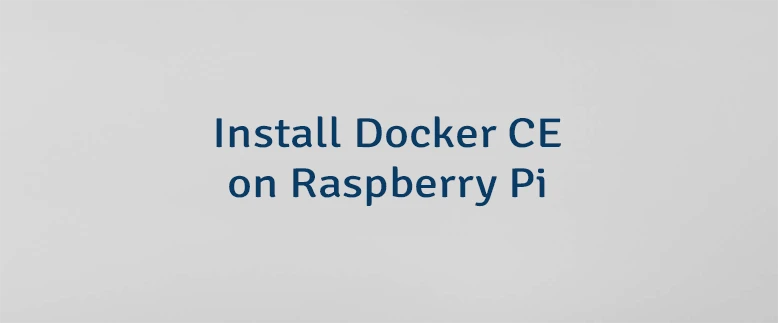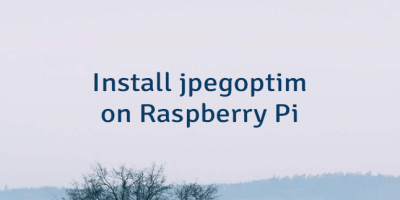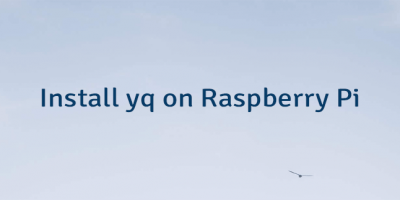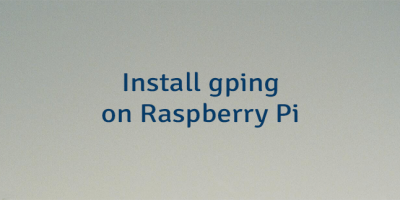Docker is an open-source platform designed for developing, testing, and running applications. It enables the packaging and execution of applications within containers - self-contained environments that include all the necessary components for the application to function.
This tutorial shows how to install Docker Community Edition (CE) on Raspberry Pi.
Install Docker CE
Download the GPG key and save it to the specified directory:
sudo wget -qO /etc/apt/keyrings/docker.asc https://download.docker.com/linux/debian/gpgAdd the Docker CE repository:
echo "deb [arch=arm64 signed-by=/etc/apt/keyrings/docker.asc] https://download.docker.com/linux/debian $(lsb_release -sc) stable" | sudo tee /etc/apt/sources.list.d/docker.listInstall the Docker CE:
sudo apt updatesudo apt install -y docker-ceBy default, Docker can be used by the root user and users with sudo privileges. During installation, a docker group is created. To allow non-root users to use Docker, simply add them to the docker group.
Add the current user to the docker group:
sudo usermod -a -G docker $USERTo apply the changes, log out and log back into your Raspberry Pi. Once reconnected, verify the Docker version:
docker versionUse the following command to check if the Docker service is running:
sudo service docker statusThe Docker service can also be stopped, started, or restarted as needed:
sudo service docker stopsudo service docker startsudo service docker restartTesting Docker CE
To verify that Docker was installed successfully, run the hello-world image.
docker run hello-worldThis command downloads a test image, runs it in a container, displays a message, and then exits.
Uninstall Docker CE
To completely uninstall Docker CE along with its dependencies, execute the following command:
sudo apt purge --autoremove -y docker-ceOnce it's complete, remove the docker group:
sudo groupdel dockerA network interface, docker0, is created during installation. You can remove it using the following command:
sudo ip link delete docker0Remove GPG key and repository:
sudo rm -rf /etc/apt/keyrings/docker.ascsudo rm -rf /etc/apt/sources.list.d/docker.listYou can also delete Docker configurations, images, containers, and other related directories:
sudo rm -rf /etc/dockersudo rm -rf /var/lib/dockersudo rm -rf /run/dockersudo rm -rf /var/run/docker.socksudo rm -rf /var/lib/containerdsudo rm -rf /opt/containerd



Leave a Comment
Cancel reply